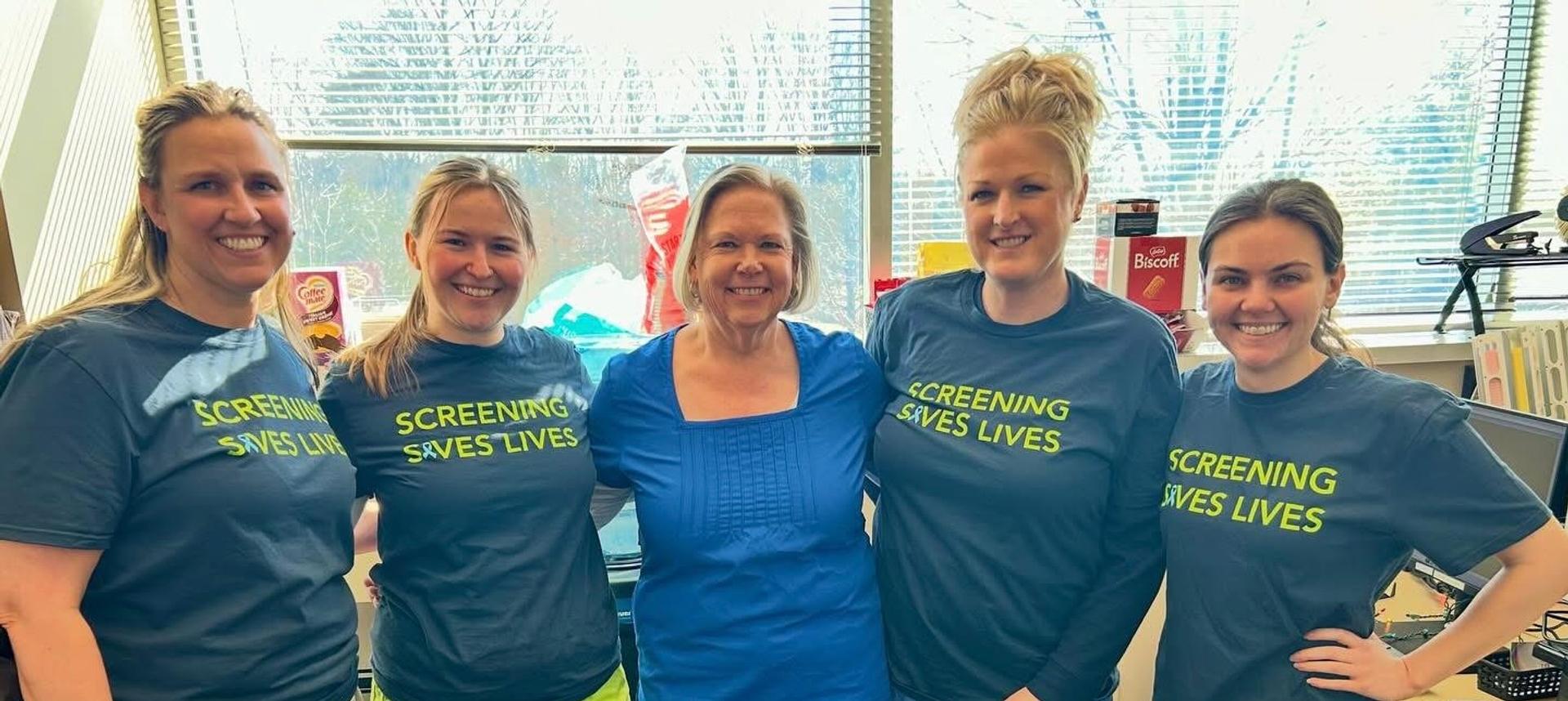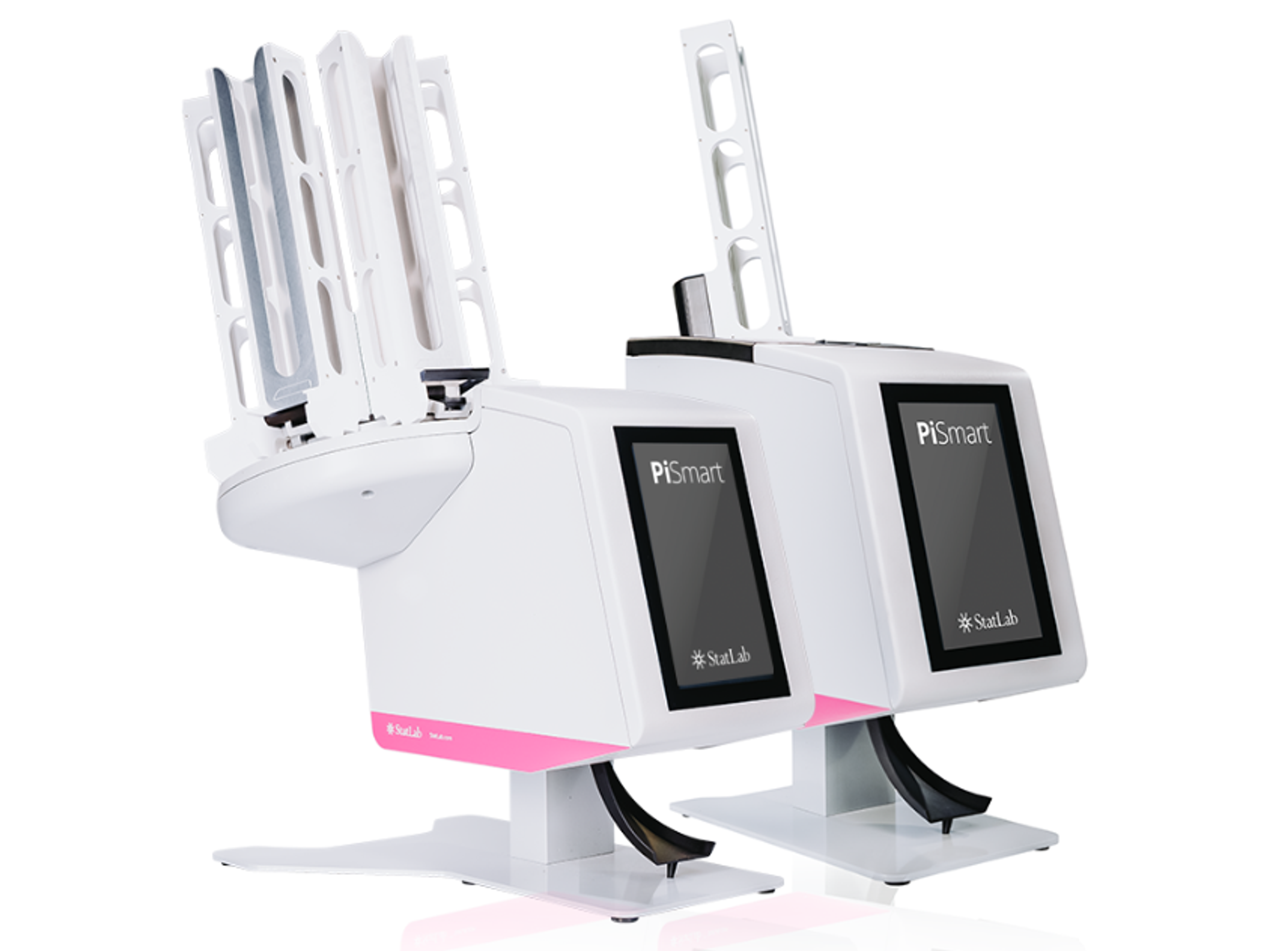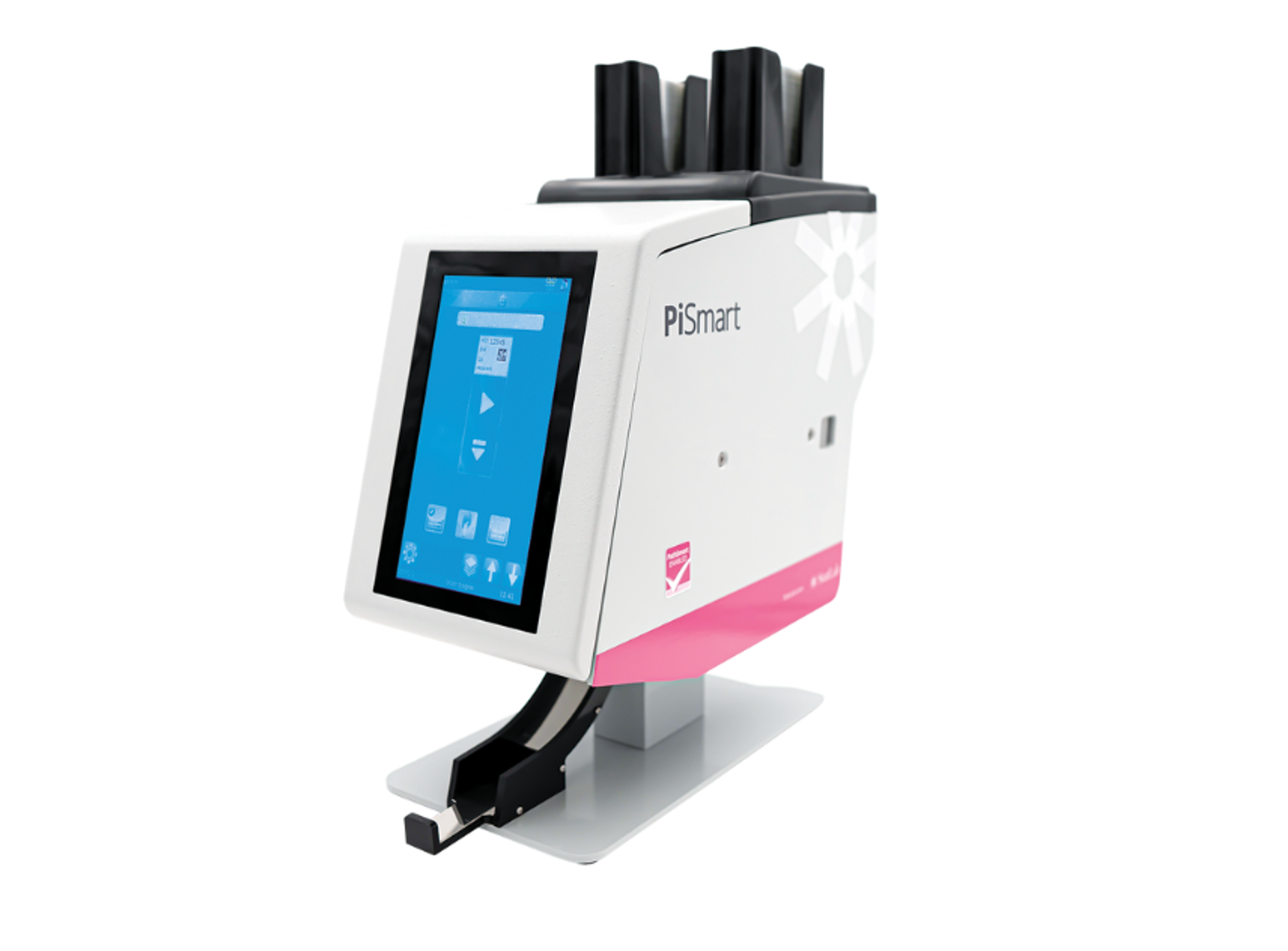How PiSmart printers are helping pathology labs save time, reduce errors, and improve patient care
One lab shares its experience boosting efficiency and accuracy with StatLab’s PiSmart Cassette and Slide printers
21 Aug 2025

Kelly Hoffman, Pathology Lab Manager, Digestive Disease Consultants
Labeling is one of those seemingly simple tasks that carries tremendous responsibility in a pathology lab. A mislabeled slide or cassette can delay diagnoses, lead to incorrect treatment, and ultimately put patient safety at risk. As the volume of samples increases and pressure mounts to increase throughput, many labs are turning to automation and digitization to streamline specimen tracking and reduce human error.
Digestive Disease Consultants in Northeastern Ohio – a GI-focused practice handling everything from routine colonoscopies to complex cancer cases – is one such lab. After consolidating four smaller labs into a single central facility, their daily volume tripled overnight, and handwritten labels quickly became a major bottleneck. That is when the team turned to StatLab.
On-demand label printing with LIMS integration
“We needed something that would save time, improve legibility, and combine multiple steps into one,” explains Kelly Hoffman, Pathology Lab Manager at Digestive Disease Consultants. “StatLab’s PiSmart printers checked every box – they’re easy to use, integrate seamlessly with our laboratory information system (LIS), and support both individual and batch printing. Since implementation, we’ve saved time on prep, reduced labeling errors, and eliminated the fatigue of handwriting hundreds of slides and cassettes.”
StatLab’s PiSmart Cassette and Slide Printers are designed to bring speed, efficiency, and accuracy to pathology labs. Available in both laser and thermal transfer options, these printers print slides in 3–5 seconds and cassettes in just 5 seconds, with high-contrast barcodes that ensure reliable scanning. Integrated scanners automatically scan data from request forms or sample barcodes, while intelligent slide and cassette selection ensures that the correct type and number of slides or cassettes are printed based on each tissue type and protocol.
My personal experience with StatLab over the last 15+ years is that they have amazing customer service and support, along with great reliability of their products.
Kelly Hoffman Digestive Disease Consultants
For Hoffman’s team, a key benefit of the PiSmart system came from its seamless integration with their LIS. As tissue samples from procedures such as colonoscopies and endoscopies arrive at the lab, each sample is accessioned, assigned a unique identifier, and logged into the LIS.
“Previously, we’d enter all the information manually and then handwrite the cassette and slide labels using a log sheet,” Hoffman says. “Now, as we type into the LIS, the printers generate labels instantly. We just push a button, and the data transfers directly, eliminating the need for a separate labeling step. That’s significantly sped up our workflow.”
Smarter customization, fewer errors
By eliminating the need for handwritten labels and enabling on-demand, LIS-connected printing, PiSmart systems help labs:
- Reduce mislabeling errors
- Streamline workflow efficiency with faster, automated processes
- Train staff more easily
- Enhance documentation by updating SOPs, work instructions, and checklists
- Improve specimen traceability
All of this contributes to faster turnaround times, smoother operations, and better outcomes for patients waiting on diagnoses.
Beyond speed and integration, the PiSmart system’s custom automation features have helped reduce manual handling and prevent errors before they happen. Built-in label design software allows for seamless customization of cassette and slide labels. You do not need additional software or separate computers; once data is entered into the LIS, the printers handle the rest, designing and printing the labels with all necessary information. The result is an automated and consistent labeling process that ensures high-quality, legible labels each time.
“We were also able to set parameters, so the printers automatically know when to print special stains and IHC slides,” Hoffman adds. “It used to be a manual process based on a log sheet – one person writing it down, another interpreting it. Now it’s built into the system.”
Hoffman’s team also took advantage of the system’s programmable options for even more efficiency. “We programmed the cassette printer to pull from specific hoppers based on the accession type – we use four cassette colors for four different locations, and now the printer automatically selects the right one,” she says.
The slide printer is just as intelligent. “It can be programmed to know when it needs to pull a plus slide for printing special stains and IHC or a regular slide for routine cases,” Hoffman adds.
All PiSmart printers come with PathSmart™, a centralized hub that links all PiSmart units to one computer, syncing user management. This delivers a real-time view of sample status and printer activity, supporting chain of custody and improving traceability of samples across the entire workflow.

The team at Digestive Disease Consultants work around the clock to deliver patient results
Consistent support from StatLab
The lab’s decision to go with StatLab was based not just on product features but on long-standing trust in the company’s customer service. “My personal experience with StatLab over the last 15+ years is that they have amazing customer service and support, along with great reliability of their products,” says Hoffman. “The StatLab team delivers prompt responses, reasonable pricing, and a great warranty.”
Even with the most reliable systems, occasional issues can arise – but StatLab has consistently responded quickly and effectively. “We don't have many issues but every single time we have had to call in for assistance, it has been resolved very rapidly,” Hoffman says. “Whether it’s a ribbon jam, a slide getting stuck, or needing to tweak settings like print darkness, the StatLab team are wonderful for jumping onto FaceTime and walking us through it all in real time. And they always follow up to ensure the problem is corrected and hasn’t continued.”
For more serious issues, StatLab offers its StatSwap program, which provides overnight delivery of a loaner unit to the lab, ensuring minimal downtime.
Empowering better patient care
Ultimately, the goal of every pathology lab is to deliver accurate, timely diagnoses. By automating routine steps and increasing throughput, StatLab’s PiSmart printers are helping labs like Digestive Disease Consultants do just that.
And the benefits go beyond convenience; they directly impact patient safety. A study by Henry Ford Hospital revealed that traditional batch printing and manual labeling led to error rates of 21% for slides and 5.7% for cassettes. After implementing on-demand printing, those rates dropped significantly, by 95% for slides and 3.5% for cassettes.
“We’re the people behind the curtain,” says Hoffman. “Our job is to make sure that tissue gets from the patient to the pathologist without any mistakes along the way,” she concludes.


